The THET (Tropical Health & Education Trust)-funded project ‘Mental Health Training for Rural Community-based Maternity Care Workers in Nepal‘ [1], led by Bournemouth University, has been showcased on the webpages of Public Health England (PHE). 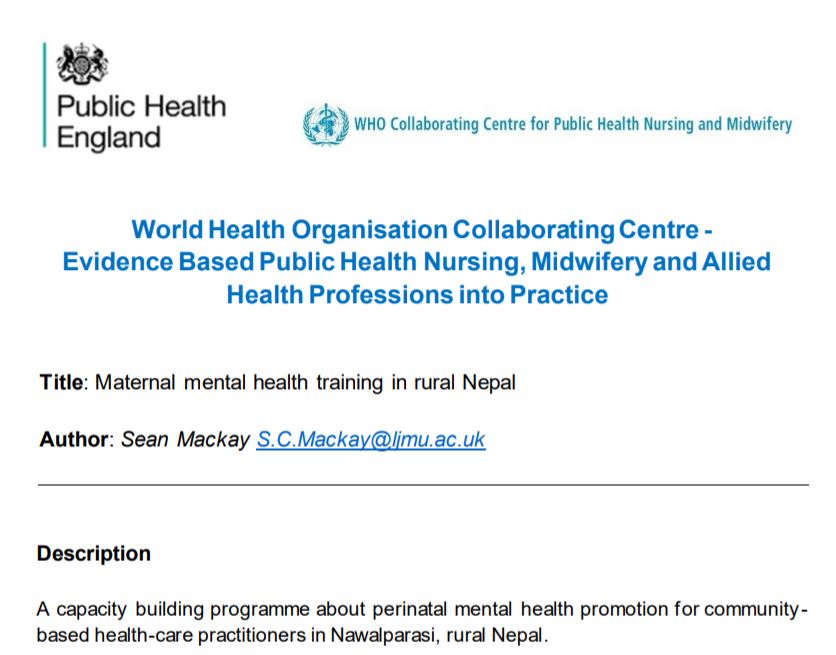 PHE hosts the WHO (World Health Organization) Collaborating Centre for Public Health Nursing and Midwifery. A WHO collaborating centre is an institution designated by the Director-General of the WHO to form part of an international collaborative network set up by WHO in support of its programme at the country, intercountry, regional, interregional and global levels. In line with the WHO policy and strategy of technical cooperation, a WHO collaborating centre also participates in the strengthening of country resources, in terms of information, services, research and training, in support of national health development.
PHE hosts the WHO (World Health Organization) Collaborating Centre for Public Health Nursing and Midwifery. A WHO collaborating centre is an institution designated by the Director-General of the WHO to form part of an international collaborative network set up by WHO in support of its programme at the country, intercountry, regional, interregional and global levels. In line with the WHO policy and strategy of technical cooperation, a WHO collaborating centre also participates in the strengthening of country resources, in terms of information, services, research and training, in support of national health development.
This THET project was organised by Tribhuvan University in collaboration with Bournemouth University and Liverpool John Moores University (LJMU). Mental health is high on the global agenda and this project raised the importance of the issue in Nepal. The three universities collaborated on an education intervention training Auxiliary Nurse Midwives in Nawalparasi on mental health issues and mental health promotion. The project was supported by Green Tara Nepal, an Non-Governmental Organisation (NGO) with whom BU has been working for over a decade. More details on this exciting project can be found in previous BU Research Blogs written in 2016 (see here) and 2017 (see here) and 2018 (see here)! The project has resulted in several academic publications including Dr. Preeti Mahato in the Centre for Midwifery, Maternal & Perinatal Health (CMMPH), Dr. Catherine Angell (CMMPH), Dr. Bibha Simkhada (formerly BU lecturer in Nursing) and FHSS Visiting Faculty Prof. Padam Simkhada and Jillian Ireland. Jillian is Professional Midwifery Advocate at University Hospitals Dorset NHS Foundation Trust. [2-6].
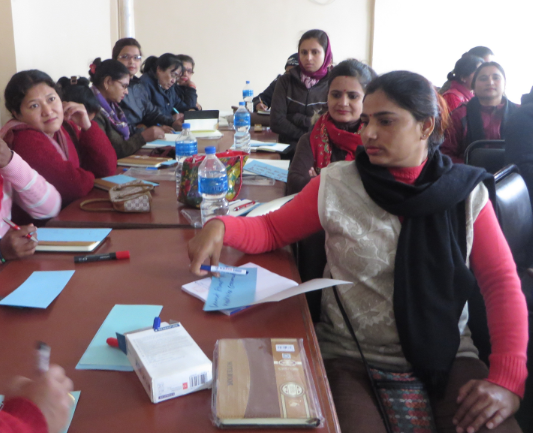
References:
- Mackay, S. (2021) Maternal mental health training in rural Nepal, World Health Organisation Collaborating Centre – Evidence Based Public Health Nursing, Midwifery and Allied Health Professions into Practice, Public Health England
- Simkhada, B., Sharma, G., Pradhan, S., van Teijlingen, E., Ireland, J., Simkhada, P., Devkota, B. & the THET team. (2016) Needs assessment of mental health training for Auxiliary Nurse Midwives: a cross-sectional survey, Journal of Manmohan Memorial Institute of Health Sciences 2(1): 20-26. http://www.nepjol.info/index.php/JMMIHS/article/view/15793/12738
- Simkhada, P., van Teijlingen E., Winter, R.C., Fanning, C., Dhungel, A., Marahatta S.B. (2015) Why are so many Nepali women killing themselves? A review of key issues Journal of Manmohan Memorial Institute of Health Sciences 1(4): 43-49. http://www.nepjol.info/index.php/JMMIHS/article/view/12001
- van Teijlingen, E., Simkhada, P., Devkota, B., Fanning, P., Ireland, J., Simkhada, B., Sherchan, L., Silwal, R.C., Pradhan, S., Maharjan, S.K., Maharjan, R.K. (2015) Mental health issues in pregnant women in Nepal. Nepal Journal of Epidemiology 5(3): 499-501. http://www.nepjol.info/index.php/NJE/article/view/13607/11007
- Mahato, P., van Teijlingen, E., Simkhada, P., Angell, C., Ireland, J. on behalf of THET team (2018) Qualitative evaluation of mental health training of Auxiliary Nurse Midwives in rural Nepal. Nurse Education Today 66: 44-50. http://www.nurseeducationtoday.com/article/S0260-6917(18)30150-3/abstract
- Ireland, J., Havelock, D., Lawrie, A., Ghimire, S. (2021) Facilitating Learning for Auxiliary Nurse Midwives around Maternal Mental Health in Southern Nepal, Journal of Midwifery Association of Nepal (JMAN) 2(1): 105-108.

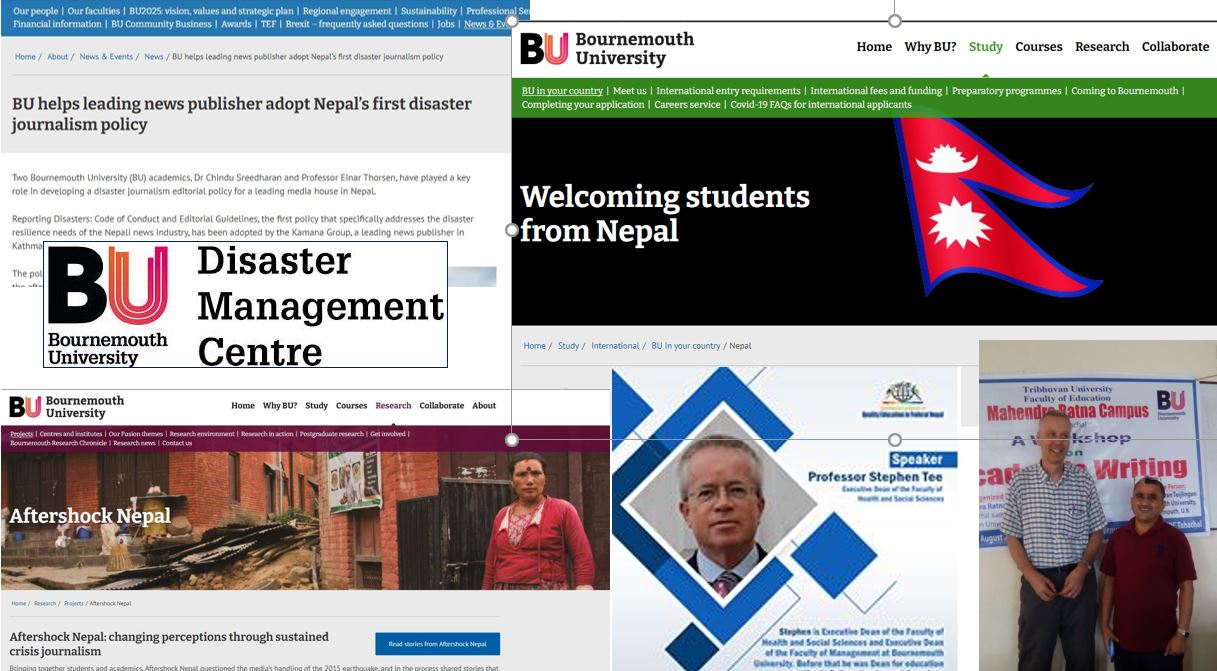

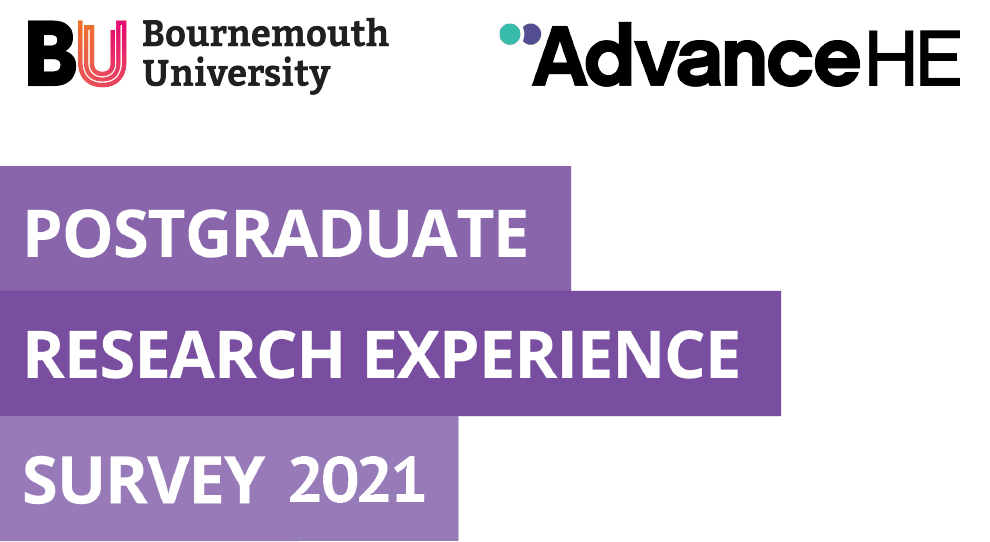
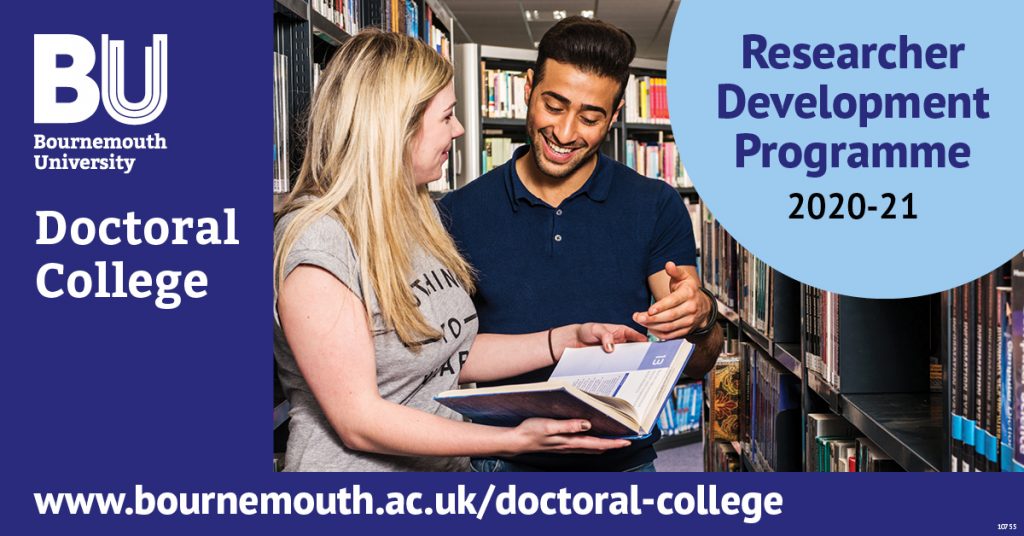
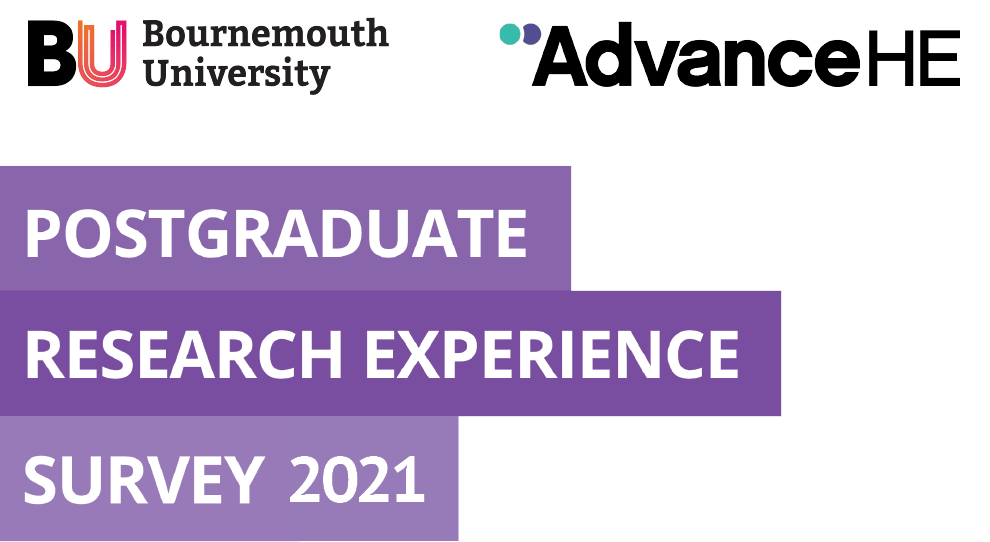
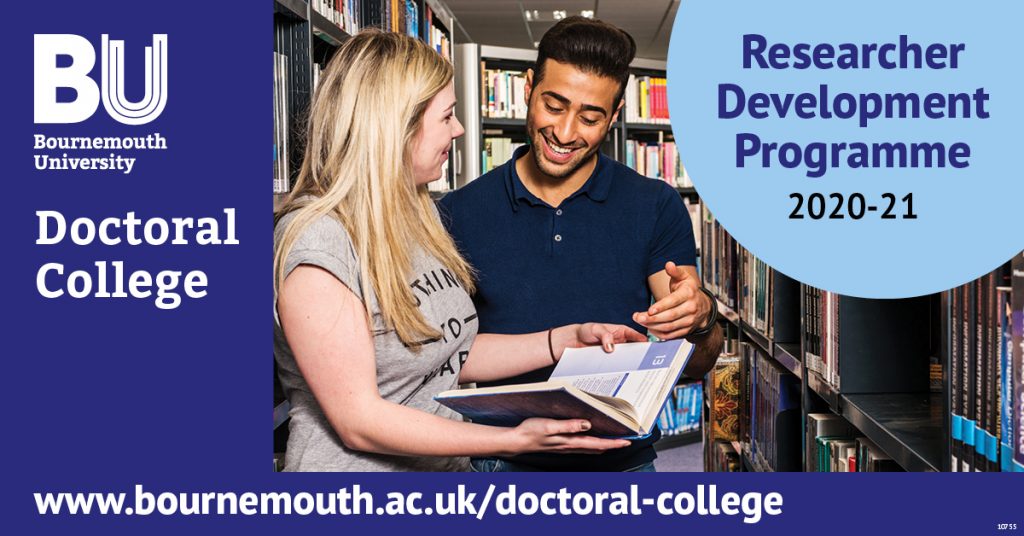
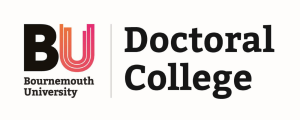 NEW for 2021! Promoting research culture at BU and celebrating postgraduate researcher achievements, the Doctoral College are collating
NEW for 2021! Promoting research culture at BU and celebrating postgraduate researcher achievements, the Doctoral College are collating 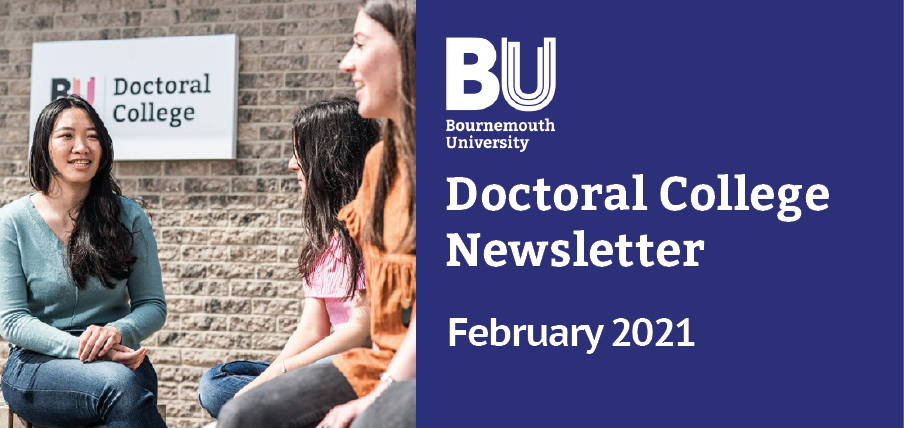

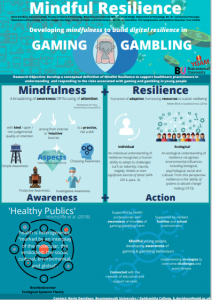
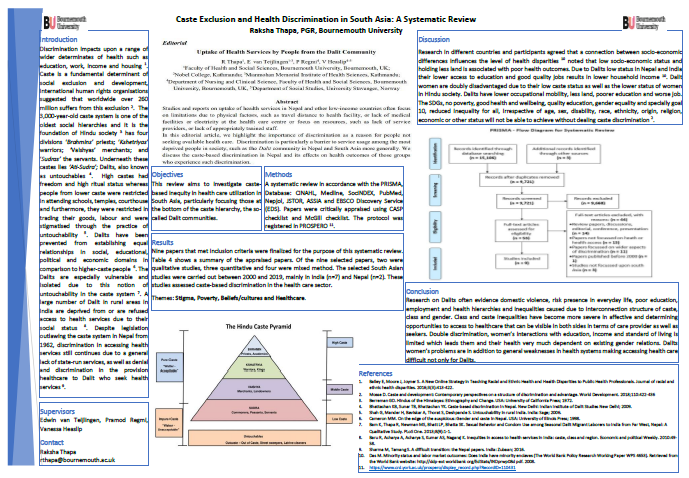











 New weight change BU paper
New weight change BU paper One week to go! | The 16th Annual Postgraduate Research Conference
One week to go! | The 16th Annual Postgraduate Research Conference Geography and Environmental Studies academics – would you like to get more involved in preparing our next REF submission?
Geography and Environmental Studies academics – would you like to get more involved in preparing our next REF submission? Congratulations to three former BU staff
Congratulations to three former BU staff MSCA Staff Exchanges 2024 Call – internal deadline
MSCA Staff Exchanges 2024 Call – internal deadline Applications are now open for 2025 ESRC Postdoctoral Fellowships!
Applications are now open for 2025 ESRC Postdoctoral Fellowships! Horizon Europe – ERC CoG and MSCA SE webinars
Horizon Europe – ERC CoG and MSCA SE webinars MaGMap: Mass Grave Mapping
MaGMap: Mass Grave Mapping ERC grants – series of webinars
ERC grants – series of webinars